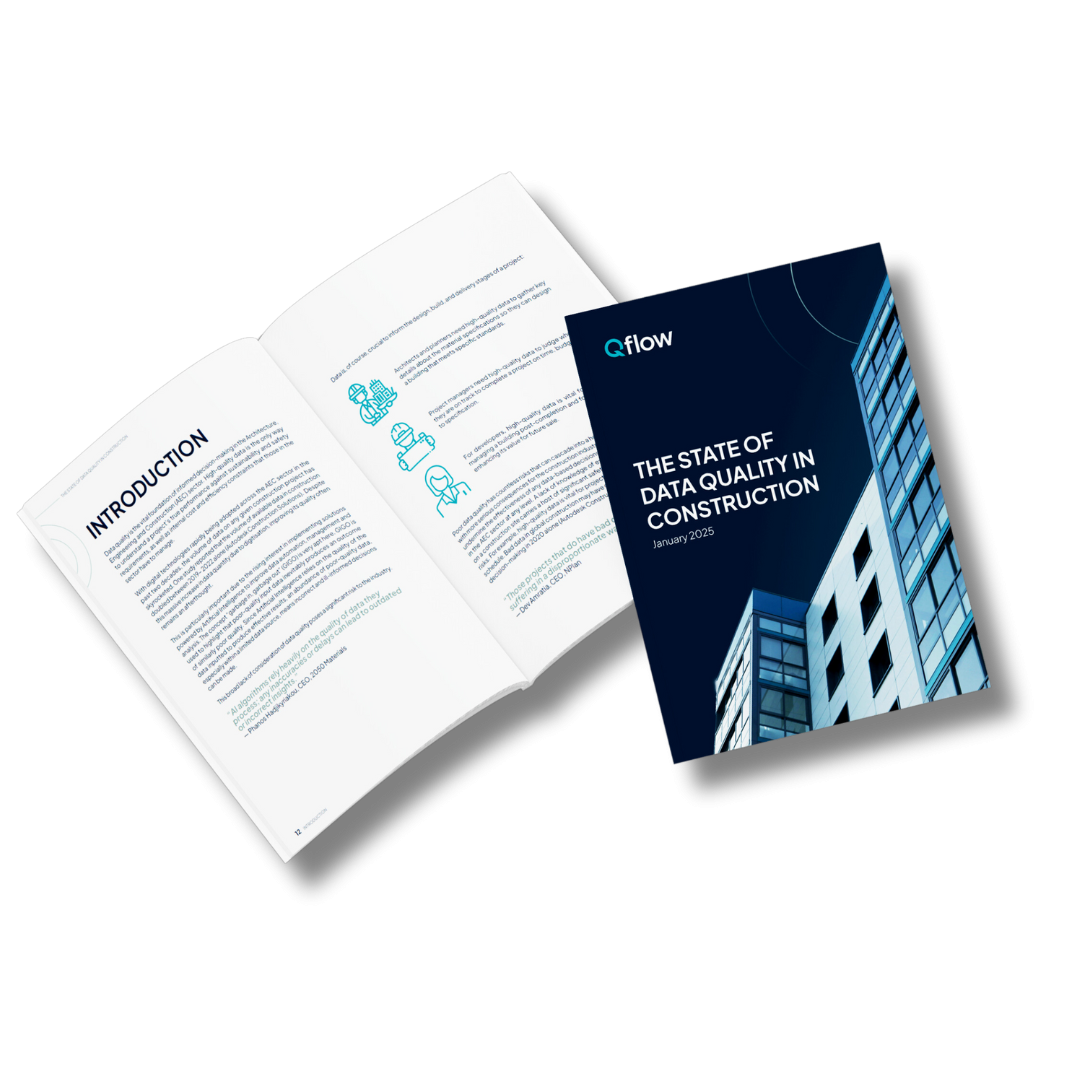The State of Data Quality in Construction

Poor data quality is costing the construction industry billions.
Due to the significant implications of data quality issues for construction material data, the findings resulting from the analysis of the product and waste documents are used as an example to showcase the challenge in the industry at large.
Our analysis uncovered some alarming trends. Of the deliveries reviewed, see how many contained “bad” documentation, meaning the data was incomplete, inconsistent, or inaccurate. This report also uncovers just how much data collected on materials could be used to calculate A1-A3 carbon emissions effectively.
The gap between available information and valuable, high-quality data raises huge challenges for the construction industry. If these issues remain unaddressed, the ability to accurately meet safety, sustainability, and cost management goals will continue to be compromised.
Download Here
By submitting this form, you consent to receive marketing updates. You can unsubscribe at any time. Please review our Privacy page for more information
What We Found
What You’ll Learn
We’ve analysed over 1 million data points from waste and delivery documentation to uncover some major issues:
- 80% of contractors lack structured systems to track delivery data.
- 91% of product and waste data needs enrichment to be useful
- + so much more
These gaps don’t just cost money—they risk compliance, sustainability, and safety. For example, just a 5% inaccuracy in one dataset could result in fines of £2.1 million.
Our report outlines:
- Why poor data costs time, money, and carbon.
- The 4 steps that solve 95% of data issues.
- How accurate data supports compliance with safety, carbon, and sustainability goals.
Key Insight:
“Without quality data, it’s impossible to ensure compliance or achieve net-zero targets.”

About Qflow
Qflow was founded with a vision to create a construction industry that uses only the resources it needs in the most efficient way possible – delivering a built environment that meets the needs of society without compromising future generations.
To help deliver this, Qflow’s technology streamlines data capture on the materials used within buildings, future-proofing the industry’s ability to recover assets at their end of life and providing information on the embodied carbon and risks of these materials today.
The platform enables contractors to collect data on materials and waste in close to real-time by extracting data from documentation on material movements on-site. This provides the basis for understanding the embodied carbon of new or refurbished spaces, as well as highlighting risks in the supply chain.
Given the importance of data to real estate delivery and management, this report is intended to shine a light on the current state of data quality within construction, using materials and waste data as an example by drawing on over 6 years of data collected through Qflow’s platform to date.
Acknowledgements

Procore provides cloud-based construction management software, streamlining project collaboration, document sharing, and cost tracking for industry professionals

nPlan leverages machine learning to analyse and predict construction project outcomes, enabling teams to mitigate risks, optimise schedules, and deliver projects more efficiently.

Adopter Limited is a green tech agency specialising in sustainable solutions that drive innovation and environmental responsibility.

Nodes & Links transforms complex project management through intelligent software, simplifying decision-making and enhancing clarity in large-scale operations.

2050 Materials is a platform revolutionising sustainable design by offering transparency and insight into material choices, empowering architects, engineers, and designers to build a greener futur

Qflow is a digital platform enabling construction teams to collect real-time materials and waste data during construction, enabling project teams to make informed decisions on cost, carbon, and quality.
